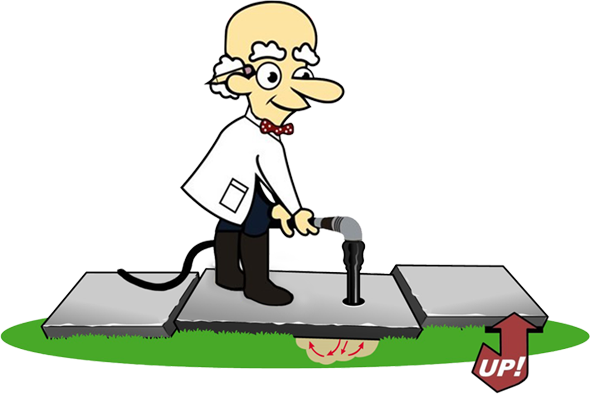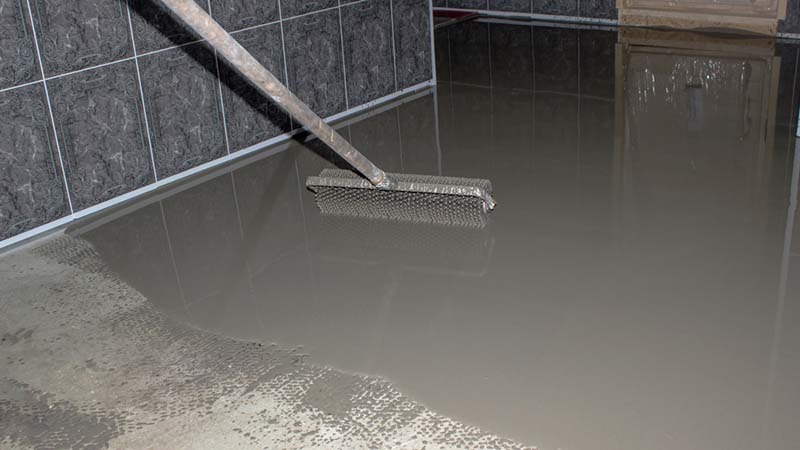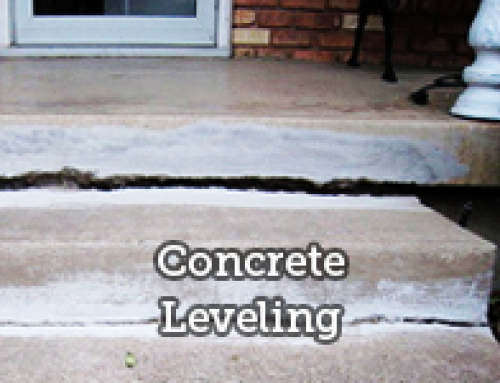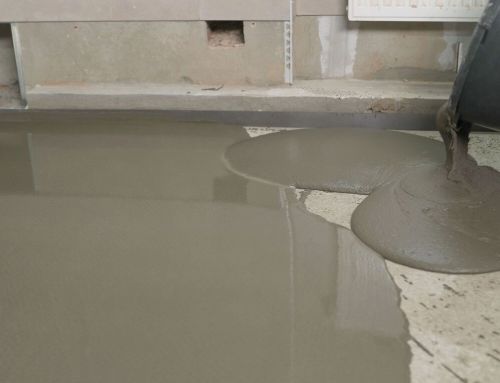IN THIS ARTICLE
Self-leveling concrete is a popular material used to create smooth, level surfaces for flooring installations. However, there can be some problems with self-leveling concrete that you should be aware of.
To avoid these problems, it’s essential to get a proper assessment from a qualified contractor that is familiar with the application of self-leveling cement and to assess the cause of concrete floor failure. This is the best way to ensure that the self-leveling concrete is applied correctly and that the substrate is adequately prepared. It’s also important to address any moisture issues before installation to ensure the longevity of the finished surface.
- Improper mixing: If the self-leveling concrete is not mixed correctly, it can lead to inconsistencies in the finished surface. This can cause areas of the surface to be thicker or thinner than intended, resulting in an uneven finish.
- Inadequate preparation of the substrate: The substrate (the surface to which the self-leveling concrete is applied) needs to be clean, dry, and free of any debris or contaminants. If the substrate is not adequately prepared, the self-leveling concrete may not bond correctly, resulting in cracking or delamination. The application of a proper bonding agent is necessary to prevent delamination.
- Improper application: Self-leveling concrete needs to be applied quickly and evenly to ensure a smooth, level surface. If it’s not applied correctly, it can result in an uneven finish, which may require additional work to correct.
- Inconsistent curing: Self-leveling concrete requires time to cure properly, and if the temperature or humidity levels are not optimal, the curing process may be inconsistent. This can result in cracking or delamination of the surface.
- Moisture issues: Self-leveling concrete is not always suitable for use in areas with high levels of moisture. If moisture levels are not addressed before the installation, it can lead to the development of mold and mildew, which can damage the surface over time.
- While the application of a self-leveling cement may level the surface, there may be voids beneath the concrete floor. This may cause future floor settlement and failure of the applied product along with any flooring material on the surface.
If properly assesses, installed and finished, self leveling-concrete can be an excellent alternative to avoid costly, invasive, concrete replacement of indoor floors with poor access.
- Mudjacking Cost: 5 Factors That Affect It - April 10, 2024
- What is The Average Cost of Concrete Leveling in Belle Mead, NJ? - April 4, 2024
- Unveiling the Top Pool Deck Resurfacing Options: Choosing the Best for You - March 26, 2024





